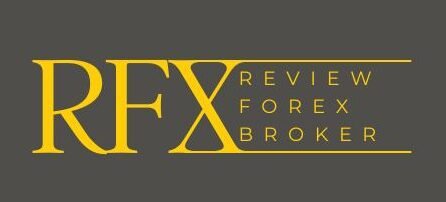Environmental, Social, and Governance (ESG) factors are increasingly shaping the financial world. Over the past few years, there has been a notable shift in how businesses, including forex brokers, approach sustainability, corporate responsibility, and ethical governance. As investors and traders become more conscious of the social and environmental impact of their activities, forex brokers are adapting to these trends by integrating ESG principles into their operations. In this blog, we’ll explore how forex brokers are responding to the growing demand for ESG-compliant services and why it matters for traders.
What Are ESG Trends?
ESG refers to three key areas of corporate responsibility that impact a company’s long-term sustainability and ethical standing:
- Environmental: This aspect focuses on how a company manages its environmental impact, including its carbon footprint, energy usage, waste management, and how it addresses climate change.
- Social: This area covers how a company interacts with its employees, customers, and communities. It includes issues such as labor practices, diversity and inclusion, human rights, and community involvement.
- Governance: Governance refers to how a company is managed and governed, including corporate transparency, board diversity, executive compensation, and business ethics.
In the context of the forex industry, ESG trends are influencing how brokers operate, offer services, and communicate with their clients. Brokers are now expected to take a more responsible approach to their business practices, provide sustainable trading options, and enhance their corporate transparency.
Why ESG Matters in Forex Trading
The rise of ESG investing has led to a broader focus on sustainable finance. As more traders and investors prioritize ethical practices and socially responsible investments, forex brokers are starting to recognize the importance of aligning with ESG standards. Here are a few reasons why ESG matters in the forex industry:
- Investor Demand
More retail traders and institutional investors are seeking out companies that align with their values, particularly when it comes to sustainability and ethical business practices. Forex brokers that adopt ESG principles may be more attractive to this growing segment of conscientious investors. - Regulatory Pressure
Global regulations surrounding ESG practices are tightening, with governments and financial regulators introducing new rules that require companies to disclose their environmental and social impacts. Forex brokers must adapt to these regulations or risk falling behind. - Reputation and Trust
Traders and investors are increasingly aware of the ethical standards of the companies they engage with. Brokers that prioritize ESG factors can enhance their reputation and build trust with their clients, which is essential in a highly competitive market. - Long-Term Sustainability
Brokers that integrate ESG into their business strategies are positioning themselves for long-term success. ESG factors contribute to operational efficiency, regulatory compliance, and overall business longevity.
How Forex Brokers Are Adapting to ESG Trends
1. Promoting Sustainable Investment Options
Forex brokers are beginning to offer trading options that align with sustainability goals. This includes providing access to green bonds, sustainable ETFs, and socially responsible investment products. These financial instruments allow traders to invest in companies or projects that have a positive environmental or social impact.
Some brokers are also expanding their asset offerings to include ESG-focused stocks and sustainable currencies. For example, brokers may allow traders to focus on currencies from countries with strong environmental policies or companies that are leaders in renewable energy.
2. Reducing Carbon Footprints
The financial industry, including forex brokers, is facing increasing pressure to reduce its environmental impact. Forex brokers are now taking steps to lower their carbon footprints by adopting energy-efficient technology, reducing waste, and minimizing their overall environmental impact. Some brokers are investing in renewable energy sources to power their operations and offset their carbon emissions.
Additionally, many brokers are shifting towards paperless environments, encouraging clients to go digital with their trading documents and communications. This reduces waste and aligns with sustainable practices.
3. Emphasizing Corporate Transparency and Ethical Governance
Governance is a critical component of ESG trends, and forex brokers are responding by becoming more transparent in their operations. Brokers are adopting stronger governance practices to enhance corporate transparency and ethical conduct. This includes ensuring compliance with financial regulations, offering clear information about trading conditions and fees, and engaging in fair business practices.
Some brokers are also focusing on diversity and inclusion within their organizations, fostering a corporate culture that promotes equal opportunity and representation at all levels of the company.
4. Educating Clients on ESG Investing
Another way forex brokers are adapting to ESG trends is by providing educational resources that inform traders about ESG investing. By offering webinars, articles, and tools that highlight the benefits of sustainable trading, brokers are helping clients make more informed decisions about incorporating ESG factors into their portfolios.
Education is crucial because many traders are still unfamiliar with ESG investment products or how to integrate these factors into their trading strategies. Forex brokers that offer guidance on how to evaluate and choose sustainable assets are helping to create a more informed and responsible trading community.
5. Incorporating ESG into Risk Management
Risk management is at the core of forex trading, and brokers are now considering ESG-related risks when offering their services. For example, brokers may analyze the environmental risks associated with certain currencies or the social and governance practices of companies they offer for trading.
By incorporating ESG into risk management strategies, brokers are better equipped to assess the long-term viability of trading instruments and provide clients with informed recommendations based on sustainability and ethical considerations.
Examples of Forex Brokers Embracing ESG Principles
Several forex brokers are already at the forefront of ESG trends, implementing various strategies to meet the growing demand for sustainability and responsibility.
1. IG Group
IG Group, one of the largest and most well-regulated forex brokers, has taken steps to integrate ESG principles into its business. The company has committed to achieving carbon neutrality by 2025 and is actively working to reduce its environmental impact. Additionally, IG Group has launched a range of sustainable investment products, such as ESG-focused ETFs, allowing traders to align their portfolios with their values.
2. Saxo Bank
Saxo Bank has long been known for its commitment to responsible investing. The broker offers a range of ESG-compliant financial products, including green bonds and sustainable stocks. Saxo also provides detailed reports on the ESG performance of companies, helping traders make informed decisions based on environmental and social factors.
3. Interactive Brokers
Interactive Brokers has made significant strides in promoting ESG trading. The platform offers ESG-focused ETFs and integrates ESG data into its research tools to help traders identify sustainable investment opportunities. The broker also focuses on improving its environmental impact by using green energy to power its data centers and reducing paper waste in its operations.
Challenges in Adapting to ESG Trends
While many forex brokers are making strides in adapting to ESG trends, there are still some challenges they face:
- Data Availability: Accurate and reliable ESG data can be difficult to obtain, and brokers may struggle to evaluate and integrate this data into their platforms.
- Cost: Implementing ESG practices can be costly, particularly for smaller brokers. However, these costs are expected to decrease as ESG practices become more mainstream.
- Regulatory Hurdles: Different jurisdictions have varying regulations surrounding ESG reporting, which can make it challenging for brokers to maintain compliance across multiple regions.
Conclusion
As the forex industry evolves, brokers are increasingly recognizing the importance of adopting ESG principles. Whether through offering sustainable investment products, reducing their carbon footprint, enhancing corporate governance, or educating clients, brokers are working to meet the growing demand for responsible trading practices. By adapting to these ESG trends, forex brokers can not only help traders make more ethical investment decisions but also contribute to a more sustainable financial ecosystem. As ESG factors continue to shape the future of finance, brokers who embrace these trends will be better positioned to succeed in an increasingly conscious market.

